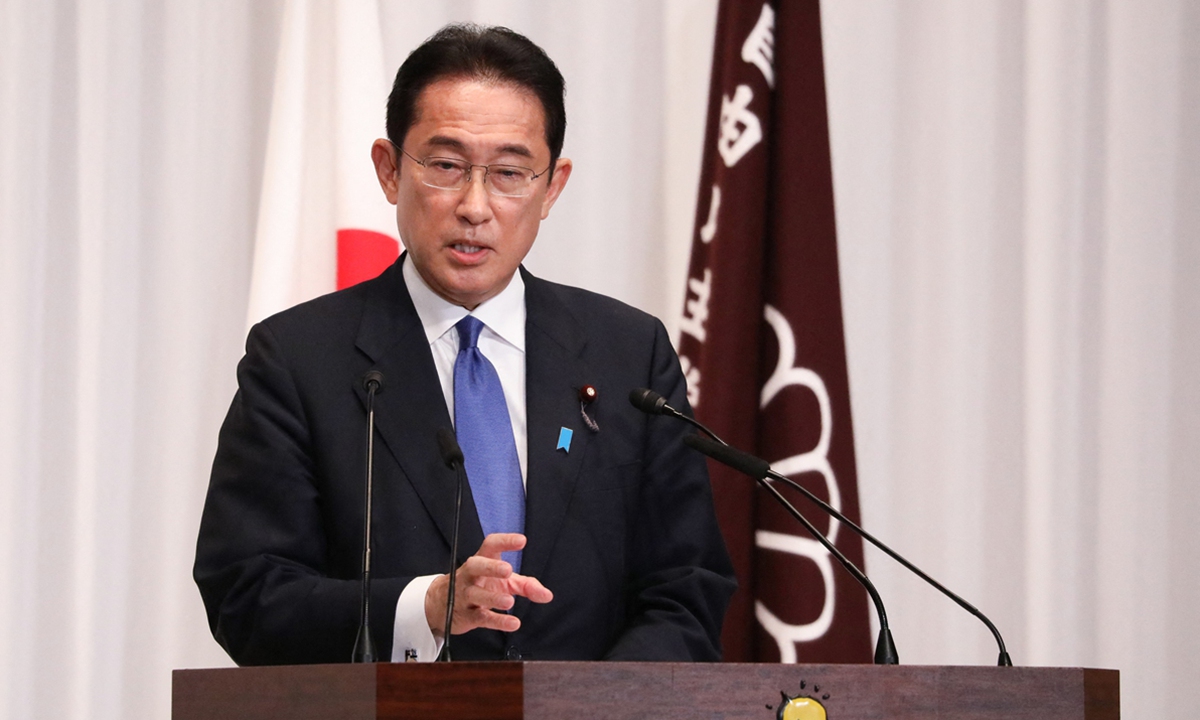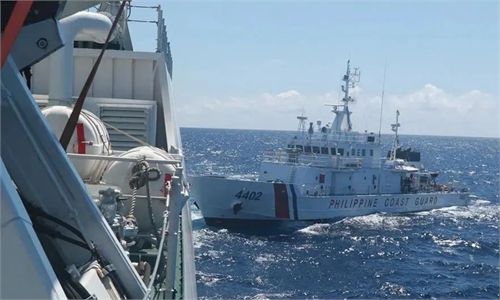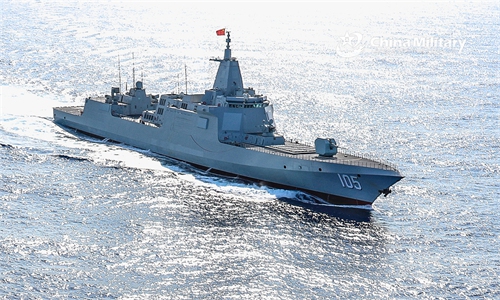Japan gets ‘more destructive’ in regional role as Kishida plans to visit the Philippines, Malaysia

Fumio Kishida Photo: AFP
In moves following the US more closely in targeting China, Japan has become increasingly divisive and destructive in the Asia-Pacific region, with Japanese Prime Minister Fumio Kishida's latest plan to visit the Philippines and Malaysia in an attempt to boost security cooperation amid rising tensions between China and the Philippines over South China Sea issues.
The focus of Kishida's potential trip to the Philippines will be bolstering security and defense cooperation, which is constantly pouring oil on the fire to incite the latter to challenge China's legitimate rights and interests, lest Manila shrink from friction with Beijing, Chinese experts pointed out.
Japanese media outlet Mainichi Shimbun on Wednesday cited a government source as saying that Kishida is considering visiting the Philippines and Malaysia in early November, around one month ahead of hosting a special summit involving ASEAN leaders.
During the planned three-day trip from November 3, Kishida is expected to hold bilateral talks with Philippine President Ferdinand Marcos Jr. and Malaysian Prime Minister Anwar Ibrahim, the source said.
It would be the first visit by Kishida to the two Southeast Asian countries since he took office in October 2021.
Mainichi Shimbun also revealed that for three days from December 16, Kishida is scheduled to preside over a gathering in Tokyo that is to be attended by Marcos, Anwar and other leaders from the 10-member ASEAN to commemorate 50 years of friendship and cooperation between Japan and the regional bloc.
Li Haidong, a professor at the China Foreign Affairs University, told the Global Times on Wednesday that Japan is actively playing the role of the US' pawn in the Asia-Pacific region, because showing loyalty to the US is the most advantageous way for Japan to bolster own influence by relying on Washington.
According to experts, Japan wants to play a leading role in shaping the Asia-Pacific security order, although the East Asian island country itself is not independent in its security. This is how the country tries to realize its military ambition that is currently restricted by Japan's pacifist constitution. Kishida could also gain support from conservative forces at home at a time when his approval rating is sliding.
Japan is very likely to express its support again for the Philippines on South China Sea issues when Kishida visits the Southeast Asia country, where he will try to manipulate international opinion over the issue and increase pressure on China, Da Zhigang, director of the Institute of Northeast Asian Studies at the Heilongjiang Provincial Academy of Social Sciences, told the Global Times on Wednesday.
Da noted that by wooing the Philippines, a country which has disputes with China, Japan is also trying to suppress China's influence in the region.
The China Coast Guard (CCG) expelled a Philippine Navy gunboat that intruded into waters off China's Huangyan Dao (also known as Huangyan Island) in the South China Sea on Tuesday. The event, together with a recent military exercise featuring the Philippines and the US, marks a possible escalation of the continued tensions between China and the Philippines that have been rumbling on since August.
Maritime Training Activity Sama Sama 2023 is the seventh and largest iteration of the drills as participants from Australia, Canada, France, Japan, the UK and Malaysia join the US and the Philippines, according to a US Navy press release, CNN reported on October 3.
This is a rarely-seen move with several external forces joining the exercise, however, such drills could become normalized in the future, Da warned.
It is a typical operation of the US-led allies colluding to create regional tensions and spread the "China threat" theory, which means to steer the region toward more conflict, Li condemned.
Such drills where some of the old colonists come together to make troubles in the Asia-Pacific region are reminiscent of the Eight-Power Allied Forces, but if the US and its allies still view and deal with China and Asia-Pacific regional issues with their old colonial and hegemonic thought, they are no doubt going against the trend of the times and will eventually pay a high price, Li warned.


